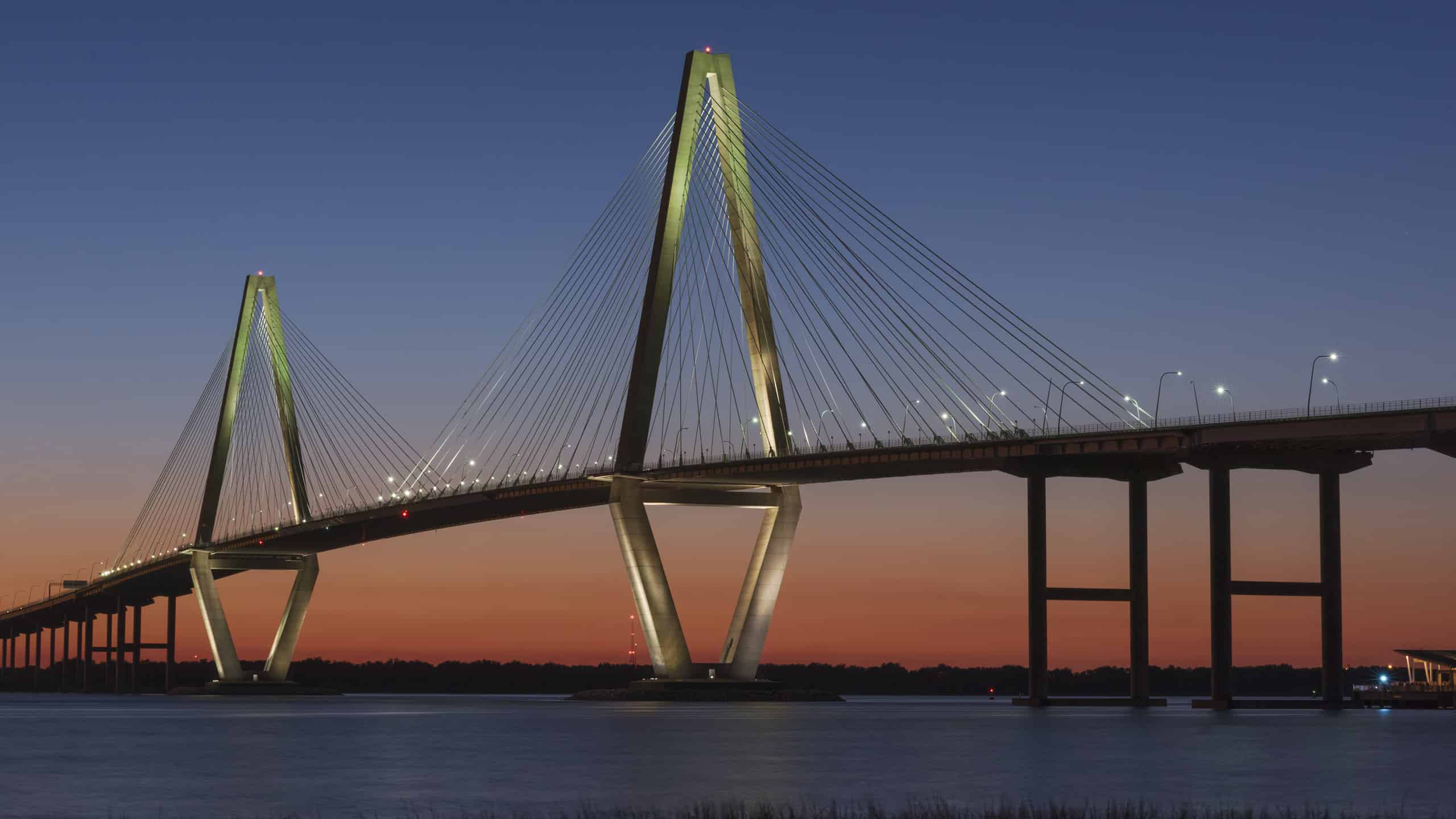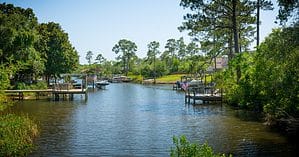For thousands of years before the arrival of European settlers, Native American tribes inhabited what is now South Carolina. Nestled along the picturesque shores of the Atlantic Ocean, South Carolina is a state steeped in history and culture. Believe it or not, the oldest town in the state is actually 106 years older than America itself!
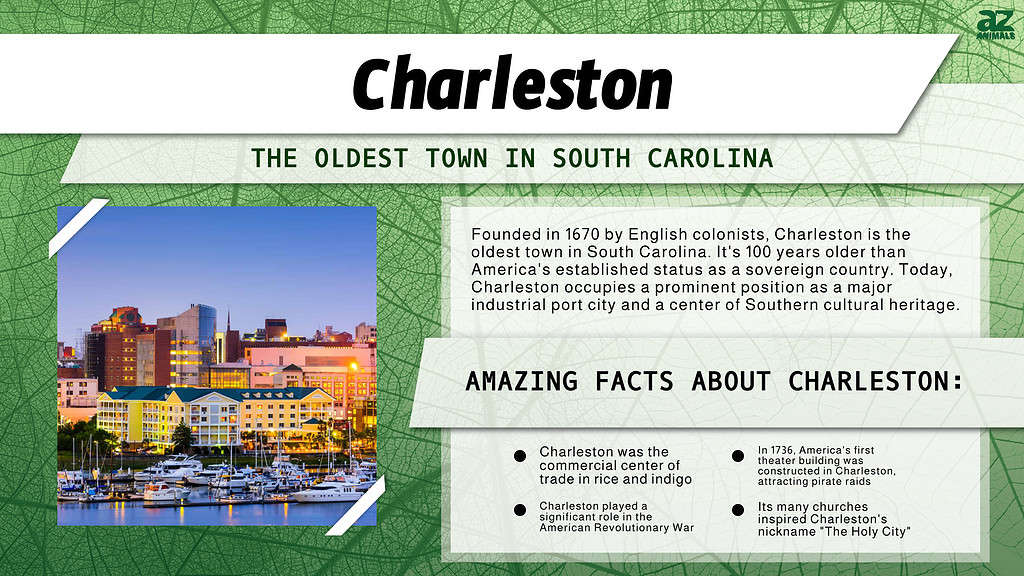
What is the Oldest Town in South Carolina?
The oldest town in South Carolina is Charleston, which was founded in 1670. In addition to being the oldest town in the state, it is also the most populous. Today, the city of Charleston has a population of around 150,000 people. Charleston’s nickname, “The Holy City”, is inspired by the many churches that help make up the city skyline.
Why is Charleston 106 Years Older Than America Itself?
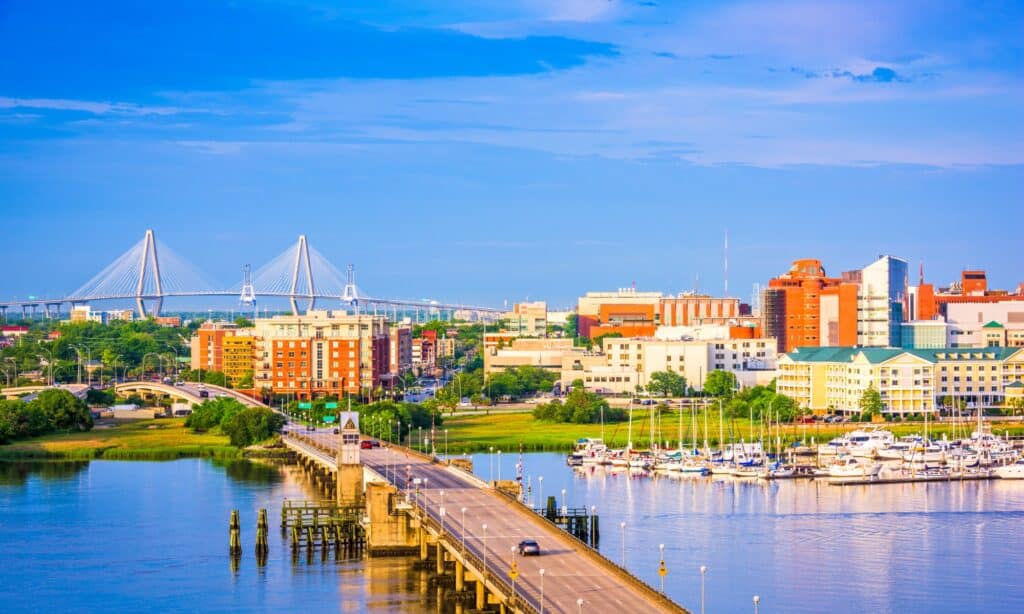
The oldest town in South Carolina is Charleston, which was founded in 1670.
©iStock.com/Sean Pavone
To reward them for helping him regain the English throne, King Charles II granted the land that now makes up North Carolina and South Carolina to eight of his most loyal friends. Seven years later in 1670, a settlement was established at Albemarle Point. In honor of their royal leader, these settlers named it Charles Town. It soon became the first comprehensively planned town in the Thirteen Colonies. At this time, America was still more than a century away from being established as a sovereign country.
During the early 1700s, the town was briefly incorporated as “Charles City and Port”. However, this name did not last, and in 1783 the town was officially incorporated as Charleston.
History of Charleston, South Carolina
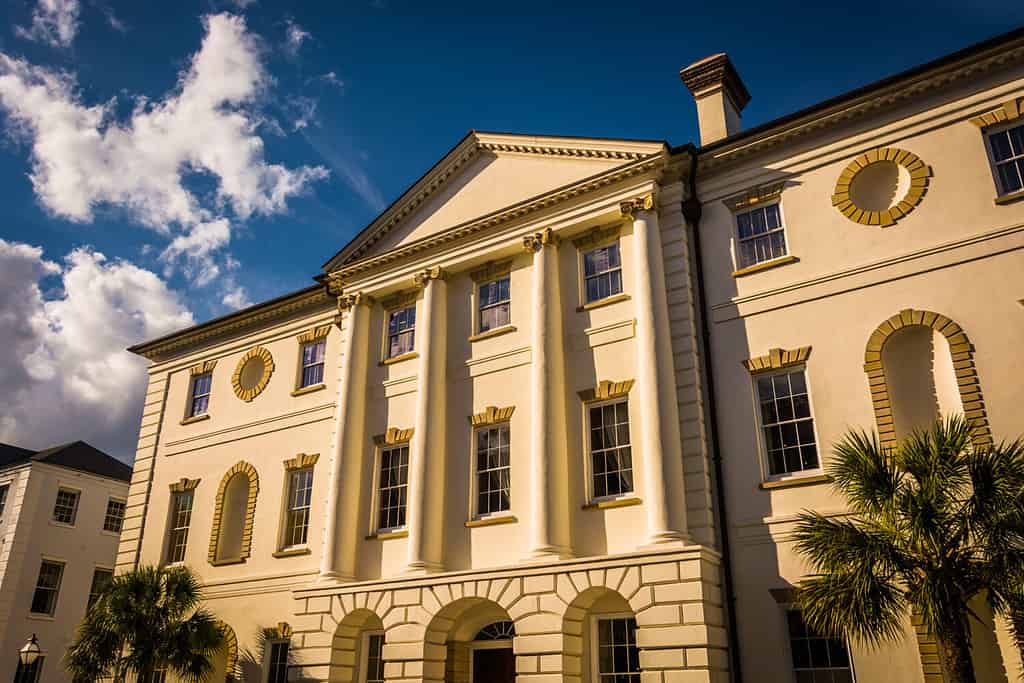
Charleston, South Carolina is a center of Southern cultural heritage.
©Jon Bilous/Shutterstock.com
Charleston, South Carolina was originally founded in 1670 by English colonists. At the time of its colonization, the area was inhabited by the Cusabo Native Americans, who would later form an alliance with the European settlers.
Over the next few decades, Charleston became the commercial center of trade in rice and indigo. During this time, it was also a popular stop for pirates. The town’s weak, corrupt government attracted pirates that would frequently raid the city.
Throughout the 18th century, Charleston’s economy flourished and the town developed quickly. In 1736, America’s first theater building was constructed in downtown Charleston. The 1730s also saw the founding of the Charleston Museum, which is now the oldest museum in the United States. By 1770, it became the wealthiest city in the Thirteen Colonies and was the fourth-largest port city.
During the late 18th century, the city of Charleston played a significant role in the American Revolutionary War. The British Army attacked Charleston three separate times over the course of the war with varying outcomes. In the Battle of Sullivan’s Island, Colonel Moultrie’s men defeated British forces while waving the Moultrie Flag. Interestingly enough, this flag would later become the inspiration for the South Carolina state flag. Four years after the Battle of Sullivan’s Island, American forces were forced to surrender the city of Charleston to the British, who held it for over a year. This loss would end up becoming the largest American defeat of the Revolutionary War.
Today, Charleston occupies a prominent position as a major industrial port city and a center of Southern cultural heritage.
Where is Charleston located in South Carolina?
Originally sitting on the west bank of the Ashley River, Charleston was moved a few miles southeast to its present-day site along the Atlantic coastline in 1680. It is located right around the geographical midpoint of South Carolina’s coastline. The city sits on a peninsula between the Ashley and Cooper rivers, and faces out towards the Atlantic Ocean. Since its establishment, Charleston’s city limits have expanded greatly, spanning across these rivers and onto several nearby islands.
Charleston is about two hours southeast of the state’s capital, Columbia, South Carolina. It also lies about 2 hours southwest of one of the state’s popular vacation spots, Myrtle Beach.
Wildlife You’ll Find in Charleston, South Carolina
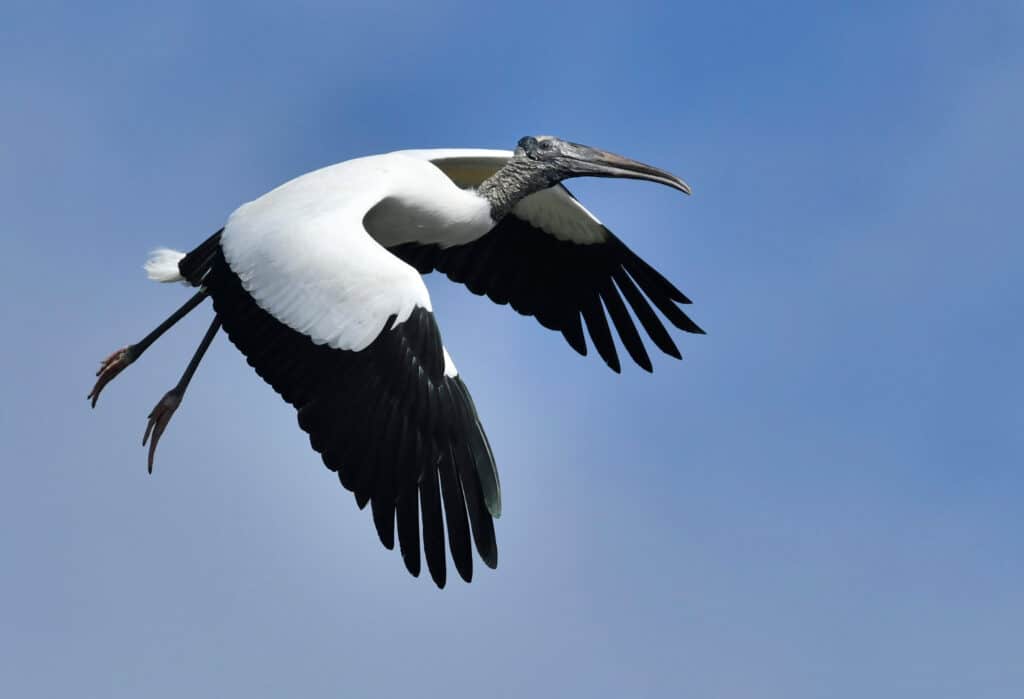
Wood storks are one of the many bird species native to Charleston.
©Breck P Kent/Shutterstock.com
As a subtropical coastal city, Charleston is home to a wide range of animal species. From the low-country forests to the vast waters of Charleston Harbor, the city’s remarkable biodiversity can be seen everywhere.
Just a short boat ride away, Bulls Island is a protected wilderness area with great opportunities to see native wildlife. On the island, visitors have a chance to witness bobcats, dolphins, sea turtles, and over 300 bird species.
At the historic site of the original Charles Town settlement, there is an 80-acre state park. Here, you’ll be able to find alligators, bats, and more species of native birds, such as the wood stork. You’ll also see plenty of white-tailed deer, which is the official state animal of South Carolina.
Where is Charleston Located on a Map?
Charleston is a South Carolina port city established in 1670. It is characterized by its charming cobblestone streets, elegant French Quarter, and Battery districts covered with pastel antebellum houses. The city’s nostalgic ambiance is further accentuated by the presence of horse-drawn carriages, adding to its historic allure.
Here is Charleston on a map:
Thank you for reading! Have some feedback for us? Contact the AZ Animals editorial team.

